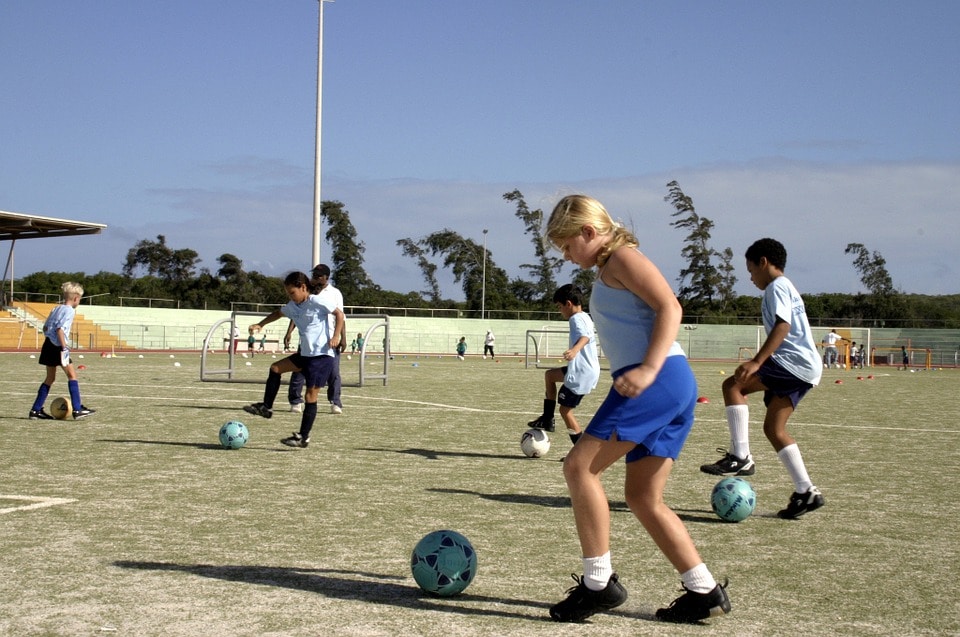World Cup Winners Battle For Equal Pay
Moments after the final whistle sounded, signaling that the US National Women’s Team had clinched yet another World Cup title, the buoyant crowd filling the Stade de Lyon in France were in celebratory mood. Amidst the fanfare and songs sung in unison, a discernible chant rose above all others. “Equal pay! Equal pay!”, demanded the crowd, offering a powerful and timely reminder that off the field, this record-breaking team is in the midst of a battle for fairness and gender equality.
In March this year, members of the US National Women’s squad, with many World Cup winners and Olympians in their ranks, decided that their substandard pay, working conditions and facilities amounted to institutionalised gender discrimination, launching an equal pay lawsuit accordingly.
In the lawsuit, they demanded equal pay and treatment to that of their male counterparts. The players have often found themselves in inferior accommodation to the men, and have been forced to train on artificial turf, leaving them more prone to injury. At the heart of the squads’ argument is that they have to win to get paid, while the men collect far more generous bonuses regardless of on-field success. The New York Times states that the total prize money for this year’s Women’s World Cup was $30 million. By comparison, the Men’s 2018 World Cup prize kitty was set at $400 million. According to Fox Sports (https://www.foxbusiness.com/features/uswnt-equal-pay-pro-sports-wage-gap), the US women’s squad are set to collect around $250,000 each for their World Cup victory, whereas the men’s team would command closer to $1,150,000 each for a similar achievement.
For some time, there was a disparity between revenue generated by the men’s and women’s team respectively, but that has disappeared in recent years. Now, women are in fact outperforming their male counterparts. According to US Soccer’s own financial figures, the women’s team brought in more revenue than the men’s team over the last three years, and their victory in the 2019 World Cup final was the most-watched soccer match in US history. Nike, the kit manufacturers, have reported that the US women’s shirt is their best selling shirt ever; revealing in fact that never before has a football shirt of any description sold so spectacularly. (https://www.cbsnews.com/news/uswnt-jersey-usa-womens-soccer-top-becomes-nikes-best-selling-soccer-jersey/) The explanation behind this surge in popularity is their on-field success. The US National Women’s team is now one of the most successful national teams ever, having won four World Cups and and four Olympic titles. The men’s team, by comparison, have never won a major title.
The women’s fight for equal pay and treatment took on even greater significance following such an impressive victory in France. Winger Tobin Heath said: “It was fantastic to be able to hear the support of the fans in the stadium for something we’ve been fighting so hard for, especially on a global stage. I think it’s just the start of something massive and culture changing.” As the popularity of women’s football has grown, so too has the pursuit of gender equality in the game. The outpouring of public support was tangible, with stadiums full of fans calling on the Federation to finally correct the disparity, echoed by those supporting from home. This very public workplace pursuit of gender equality has been placed firmly on the global stage.
“We believe that fighting for gender equality in sports is a part of our responsibility. As players, we deserve to be paid equally for our work, regardless of our gender”, USA captain Alex Morgan said.
“The legacy we leave behind of pushing women forward and standing up for what’s right; that is what’s important and what’s what we’re continuing”, said goalkeeper Ashlyn Harris.”
With another victory in their sights, this time one of even larger reach and magnitude, The US National Women’s Team are on course to set a vital precedent for future generations of female athletes.







